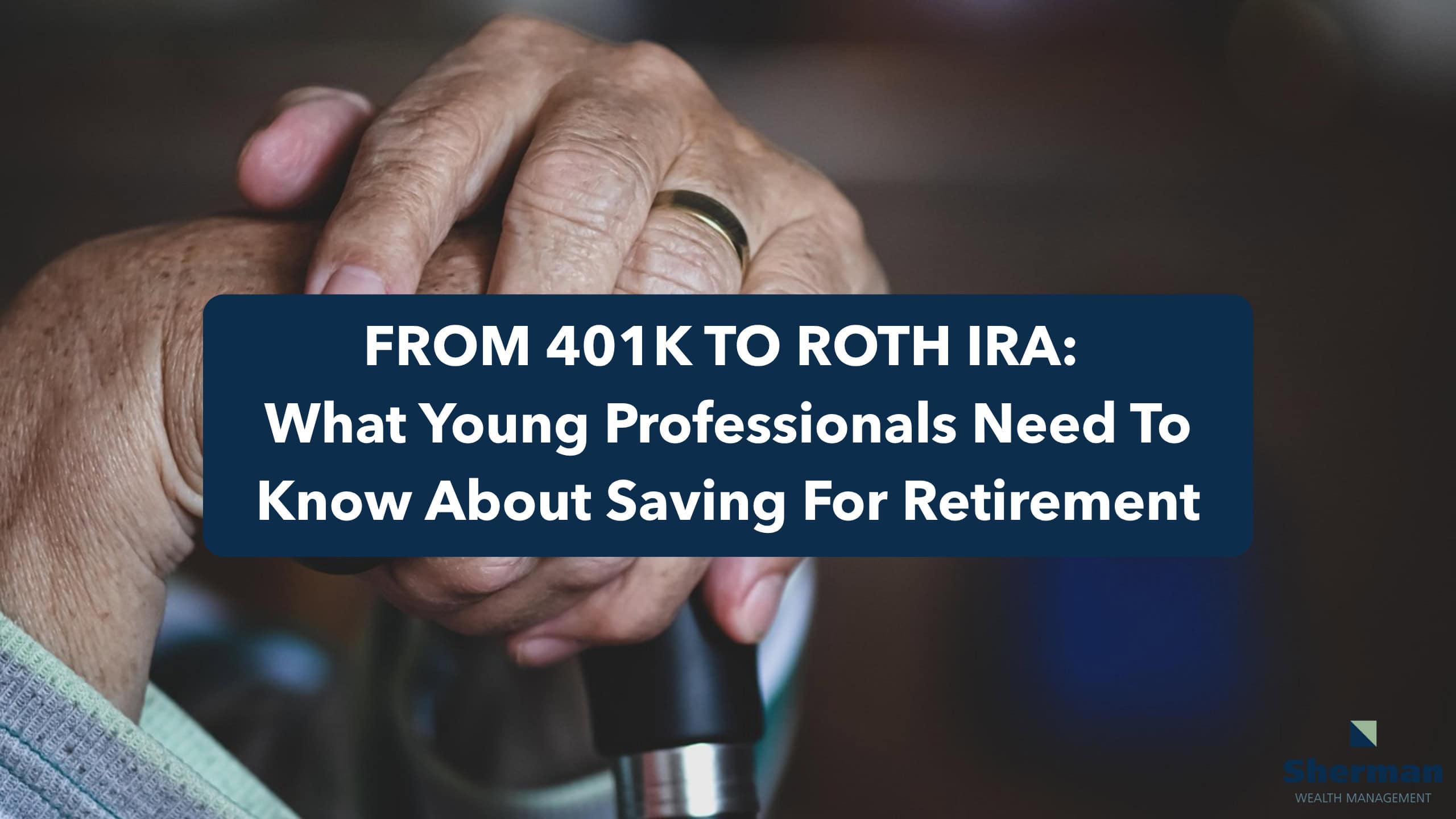From 401(k) to Roth IRA: What Young Professionals Need to Know About Saving for Retirement

For many young professionals, the future feels far away. Between building your career, paying off student loans, and managing day-to-day expenses, retirement might not be top of mind. But here’s the truth: the earlier you understand how different retirement accounts work, the more flexibility and confidence you’ll have later.
If you’ve heard about 401(k)s and Roth accounts but aren’t entirely sure how they differ, you’re not alone. These are two of the most common tools for retirement saving, and they work in different, but complementary, ways.
401(k) vs. IRA vs. Roth: What’s the Difference?
At the core, the distinction is about ownership and when you pay taxes.
401(k): An employer-sponsored retirement plan which generally offers higher limits than IRAs and also sometimes offer an employer match. In the traditional 401(k), contributions are tax-deferred, and can offer a top-line deduction on your tax return in the year you contribute, meaning you put money in before taxes and pay later when you withdraw in retirement. However, many 401(K) plans have added a Roth contribution option to their plans, meaning you pay taxes upon contribution.
IRA (Individual Retirement Account): An individual retirement account, opened and managed by individuals. Often have lower contribution limits and a wider selection of personal investment options and open architecture. Offers tax-advantaged retirement savings, with both traditional pre-tax and Roth post-tax options available.
Roth contributions are offered for both 401(k)s and IRAs. Contributions are made after taxes, meaning you pay taxes in the year in which you contribute the funds, and the growth and withdrawals are tax-free in retirement. However, in the Roth IRA accounts, there are income limits that can deem you unable to contribute, where in the Roth 401(K) accounts, there are no income limit restrictions.
All accounts aim to grow your savings, but they approach taxation and ownership from different angles. Knowing the difference helps you think about which approach might align with your goals over time.
Why Starting Early Matters
Even modest contributions made in your 20s or 30s have decades to grow. That’s the power of compound interest, your earnings earn interest which allows your total balance to exponentially grow over time. Starting now isn’t just about the dollars you set aside today, but about giving those dollars the longest runway possible to work for you.
Think of it this way: your future self will thank you not just for saving, but for giving your money time to grow.
You may be wondering, “Okay, but how do I prioritize between different options?” Below is an example of common order of operations that many professionals consider, but since every situation looks different, this framework varies. This is why working with a financial professional and tax professional to help analyze your personal financial situation can be crucial. For example, If your company offers a 401(k) match, that’s essentially free money toward your retirement. A good rule of thumb is to contribute at least that amount to your retirement account. However, determining between Roth and traditional contributions to both your employer and self directed retirement account, working with a financial professional can help you best strategize and plan. Lastly, it’s important to understand the time horizon of saving for retirement, and where else you should invest beyond those longer term buckets. For example, for additional saving beyond retirement accounts, a regular brokerage account can provide liquidity and flexibility.
Why This Matters for Young Professionals
So why should you care? Because these decisions aren’t just about retirement – they’re about freedom. The earlier you understand your options, the more choices you create for yourself down the road. Whether that means retiring early, starting a business later in life, or simply reducing stress, saving today is about building flexibility for tomorrow.
The key question to ask yourself is this: Am I putting my money in places that will give me choices in the future, or am I leaving opportunities on the table?
Retirement may feel far away, but the decisions you make early in your career can shape the kind of future you’ll enjoy. By understanding your options and creating a plan, you’re not just saving. You’re building a lifestyle with more possibilities. At Sherman Wealth, we help young professionals cut through the complexity and create clarity around their financial future. If you’d like to learn more, reach out to info@shermanwealth.com or schedule a complimentary intro call.
